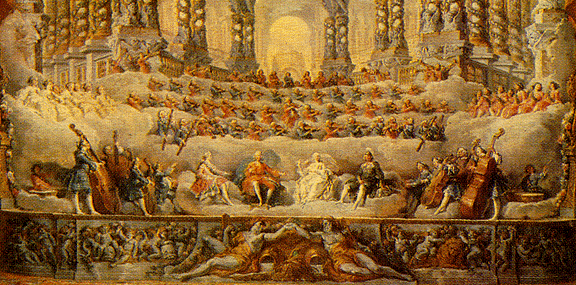
Introduction
Academia’s method of teaching music history usually is focused on composers, the music they right, and sometimes performance practice and historical context. However, little is focused on how these men and women became composers. It is taken for granted that Monteverdi, Purcell, Bach, and all other composers of the baroque were taught how to read the musical notation of the time, how to write counterpoint, and many other important skills it takes to be a composer. In this website, the question how and why someone became a composer in the baroque period will attempt to be answered. Factors such as general music pedagogy and the status composers held during the seventeenth and eighteenth centuries will be taken into account. Additionally this website will discuss treatises and their importance in disseminating musical information to future generations with a focus on the treatises of Rameau and Playford. This topic, however, is a very expansive topic that cannot be fully answered for a variety of reasons that will be explained later in the subsequent pages:
-
Composers' Status
-
This page will illuminate the composer's role in society during the seventeenth and early eighteenth century. This is done to provide possible reasoning for a person to choose composing as a profession during the Baroque period.
-
-
Music Pedagogy
-
This page will explore the various avenues in which a person would learn music based on their social and economic standing.
-
-
Treatises
-
This page will discuss treatises and their how they were a means for composers and casual musicians a like to learn basic musical concepts as well as complicated and innovative harmonic theories.
-
-
Conclusion
-
The conclusion page brings all ideas together and but states that there are still missing pieces of the puzzle.
-
